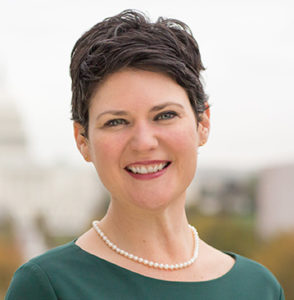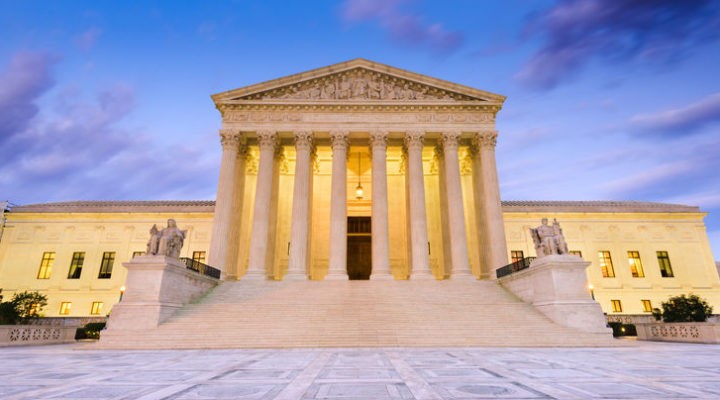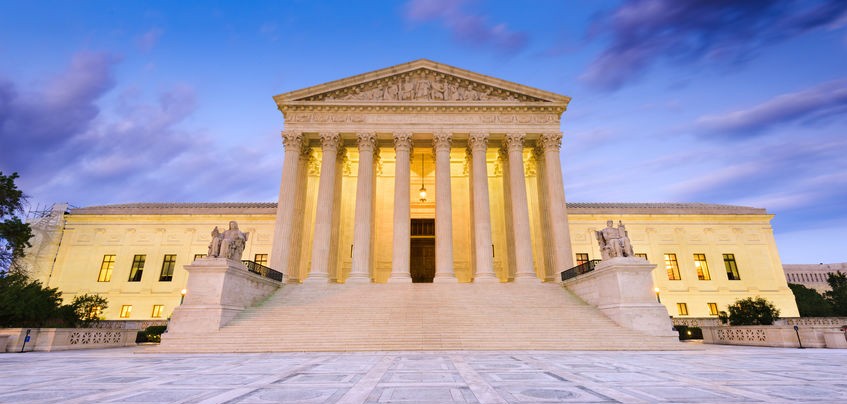The United States Supreme Court unanimously sided with Catholic Social Services in its claim against the City of Philadelphia, saying the city cannot exclude the faith-based agency from a foster care contract merely because it does not serve LGBTQ clients.
The case, Fulton v. City of Philadelphia, stopped short of revisiting another key court ruling that some advocates had hoped the court would overturn. That 1990 case, Employment Division v. Smith, found that the First Amendment is not violated when neutral, generally applicable laws conflict with religious practices. This less demanding standard previously had applied only in specific contexts such as prisons and the military.
In separate concurring opinions on the Philadelphia case, justices addressed the decision not to revisit Employment Division. Justice Amy Coney Barrett, joined by justices Brett Kavanaugh and Stephen Breyer, wrote questioning what would replace Employment Division. Justice Samuel Alito, joined by justices Clarence Thomas and Neil Gorsuch, lamented the court’s unwillingness to revisit Employment Division in this instance.
Nevertheless, the court’s majority opinion written by Chief Justice John Roberts takes a narrow approach to the Philadelphia case.
The case
The essence of the case is that the City of Philadelphia adopted a non-discrimination policy that prohibits working with contracted partners that discriminate on the basis of religion, sexual orientation and other protected categories.
Because Catholic Social Services — a longtime provider of child care services in the region — would not meet the nondiscrimination requirements of the city, its contract to provide certain foster care services was allowed to expire, even though the city still worked with Catholic Social Services on other issues.
The faith-based agency sued, claiming discrimination by the city. That case wound its way through several lower courts, eventually landing at the Supreme Court for oral arguments the day after the 2020 presidential election, with new justice Barrett freshly installed on the court and tipping the scales to a decidedly conservative majority.
That majority didn’t matter in this case, however, as all nine justices came to the same conclusion but in somewhat different ways.
The narrow, unanimous ruling
In the majority opinion written by Chief Justice Roberts, the court affirmed that “the contractual non-discrimination requirement imposes a burden on CSS’s religious exercise and does not qualify as generally applicable.”
“So long as the government can achieve its interests in a manner that does not burden religion, it must do so.”
Roberts explained: “So long as the government can achieve its interests in a manner that does not burden religion, it must do so.” And in this case, allowing Catholic Social Services to continue its role as one of several providers of foster care services can be achieved without burdening the agency over its religious beliefs.
“Maximizing the number of foster families and minimizing liability are important goals, but the city fails to show that granting CSS an exception will put those goals at risk. If anything, including CSS in the program seems likely to increase, not reduce, the number of available foster parents,” Roberts wrote. “The city offers no compelling reason why it has a particular interest in denying an exception to CSS while making them available to others.”
Further, Roberts wrote: “CSS seeks only an accommodation that will allow it to continue serving the children of Philadelphia in a manner consistent with its religious beliefs; it does not seek to impose those beliefs on anyone else. The refusal of Philadelphia to contract with CSS for the provision of foster care services unless it agrees to certify same-sex couples as foster parents cannot survive strict scrutiny and violates the First Amendment.”
While the ruling does not sanction discrimination against LGBTQ persons, it does signal that faith-based organizations may be allowed to discriminate if other organizations providing the same services do not discriminate. A key component of the Philadelphia case is that Catholic Social Services is one of several organizations that contract with the city to provide the same services. Others within that group gladly work with LGBTQ parents.
While the ruling does not sanction discrimination against LGBTQ persons, it does signal that faith-based organizations may be allowed to discriminate if other organizations providing the same services do not discriminate.
Applauding the decision
“Today’s decision recognizes that diverse foster agencies will help diverse families thrive,” said a news release from Beckett Law, the firm representing plaintiffs Sharonell Fulton and Toni Simms-Busch, two foster mothers working with Catholic Social Services.
“I am overjoyed that the Supreme Court recognized the important work of Catholic Social Services and has allowed me to continue fostering children most in need of a loving home,” Fulton said in the release. “My faith is what drives me to care for foster children here in Philadelphia and I thank God the Supreme Court believes that’s a good thing, worthy of protection.”
“Our foster-care ministry in Philadelphia is vital to solving the foster care crisis and Catholic Social Services is a cornerstone of that ministry,” said Simms-Busch. “The Supreme Court’s decision ensures the most vulnerable children in the City of Brotherly Love have every opportunity to find loving homes.”
A surprising outcome with little application
Amanda Tyler, executive director of Baptist Joint Committee for Religious Liberty, pointed to the narrow scope of the court’s ruling.

Amanda Tyler
“Chief Justice Roberts produced a unanimous result in favor of Catholic Social Services that focuses on a particular aspect of this government contract,” she said. “The majority found that the city of Philadelphia’s nondiscrimination policy was not ‘generally applicable,’ pointing to a contractual provision that allows the prospect of a government official granting exceptions. This approach was somewhat surprising because there was no evidence that the city had ever granted an exception or that Catholic Social Services had asked for one.
“The Court’s decision does not require religious exemptions in all future cases involving government contracts and nondiscrimination policies. That is a good thing because nondiscrimination provisions often protect religious liberty in government services. It is disappointing that the court rejected the city’s compelling interest in the equal treatment of prospective foster parents and foster children, particularly in the context of government contracts voluntarily entered into by religious contractors.”
BJC had filed a friend-of-the-court brief supporting the city in this case, arguing that when faith-based groups voluntarily administer a government-funded program, those groups must work within the government’s own guidelines.
Celebrating a narrow ruling
Those who advocate for full inclusion of the LGBTQ community, meanwhile, celebrated the narrowness of the court’s ruling.
“Today, the Supreme Court decided that Philadelphia had to allow Catholic Social Services to exclude LGBTQ families from its publicly funded foster care program. But the narrow decision, which turned on the specific facts of the case, means that religious extremists did not get the sweeping free pass they were seeking to discriminate wherever and however they want,” said Rachel Laser, president of Americans United for Separation of Church and State.
“The narrow decision, which turned on the specific facts of the case, means that religious extremists did not get the sweeping free pass they were seeking.”
“Nine justices could agree on this decision because it was so narrow. The court concluded that because Philadelphia allowed individualized exemptions from its non-discrimination requirements in its foster care program, it had to exempt Catholic Social Services. Significantly, the court declined to rewrite the First Amendment to grant a broad license to discriminate in the name of religion. The court also acknowledged the importance of non-discrimination laws and specifically respected the dignity of LGBTQ people.”
A similar message came from the Human Rights Campaign, where President Alphonso David said: “Though today’s decision is not a complete victory, it does not negate the fact that every qualified family is valid and worthy — children deserve a loving, caring, committed home. We celebrate the LGBTQ families who are dedicated to providing homes to the thousands of children in the child welfare system.”
This story will be updated as new information becomes available.
Related articles:
Barrett joins in debate as Supreme Court weighs Philadelphia religious liberty case
Upcoming Supreme Court ruling could influence child care case in Kentucky too
How an upcoming Supreme Court decision on ‘religious freedom’ could undermine religious freedom


